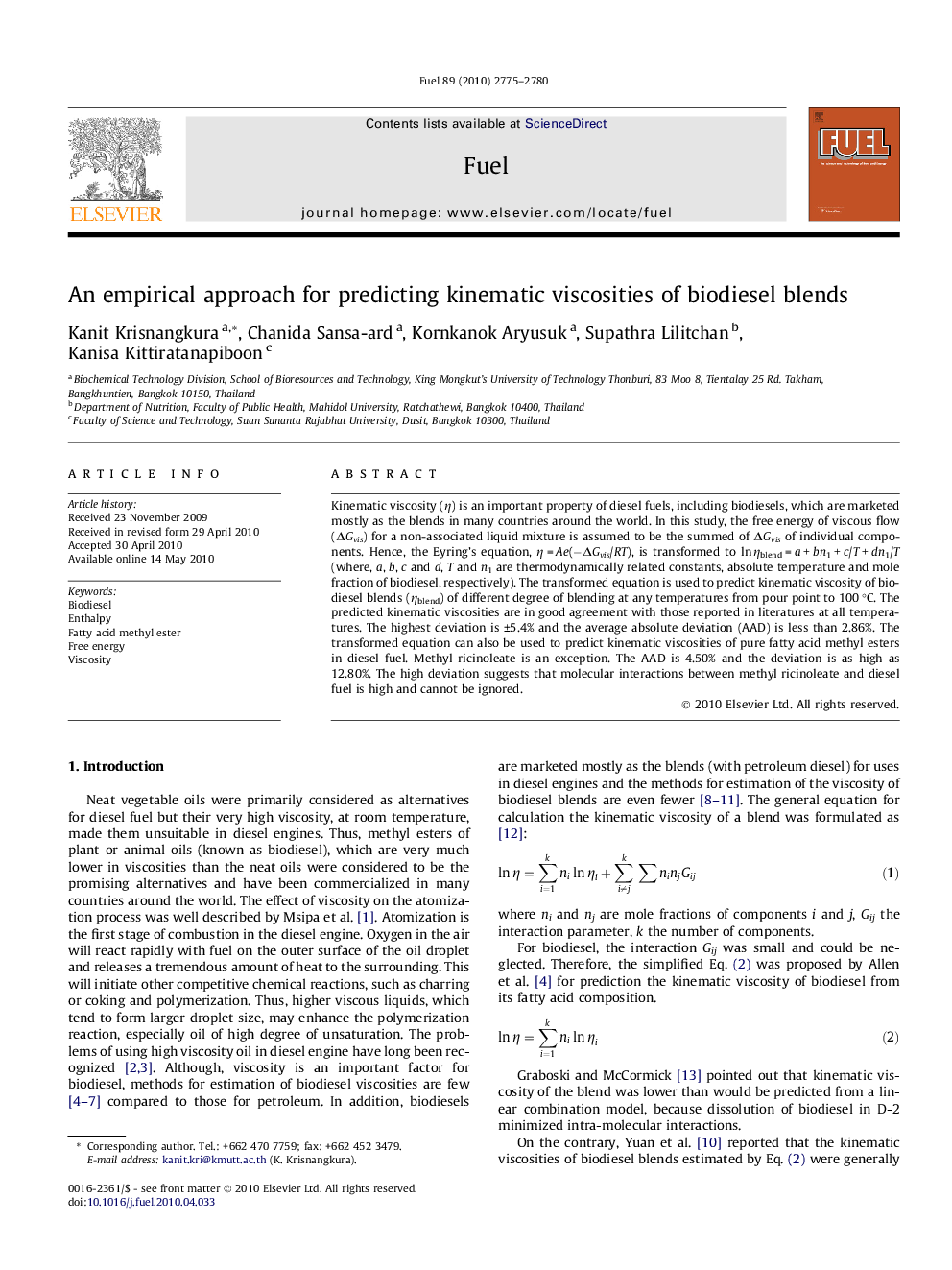| کد مقاله | کد نشریه | سال انتشار | مقاله انگلیسی | نسخه تمام متن |
|---|---|---|---|---|
| 206541 | 461192 | 2010 | 6 صفحه PDF | دانلود رایگان |

Kinematic viscosity (η) is an important property of diesel fuels, including biodiesels, which are marketed mostly as the blends in many countries around the world. In this study, the free energy of viscous flow (ΔGvis) for a non-associated liquid mixture is assumed to be the summed of ΔGvis of individual components. Hence, the Eyring’s equation, η = Ae(−ΔGvis/RT), is transformed to ln ηblend = a + bn1 + c/T + dn1/T (where, a, b, c and d, T and n1 are thermodynamically related constants, absolute temperature and mole fraction of biodiesel, respectively). The transformed equation is used to predict kinematic viscosity of biodiesel blends (ηblend) of different degree of blending at any temperatures from pour point to 100 °C. The predicted kinematic viscosities are in good agreement with those reported in literatures at all temperatures. The highest deviation is ±5.4% and the average absolute deviation (AAD) is less than 2.86%. The transformed equation can also be used to predict kinematic viscosities of pure fatty acid methyl esters in diesel fuel. Methyl ricinoleate is an exception. The AAD is 4.50% and the deviation is as high as 12.80%. The high deviation suggests that molecular interactions between methyl ricinoleate and diesel fuel is high and cannot be ignored.
Journal: Fuel - Volume 89, Issue 10, October 2010, Pages 2775–2780